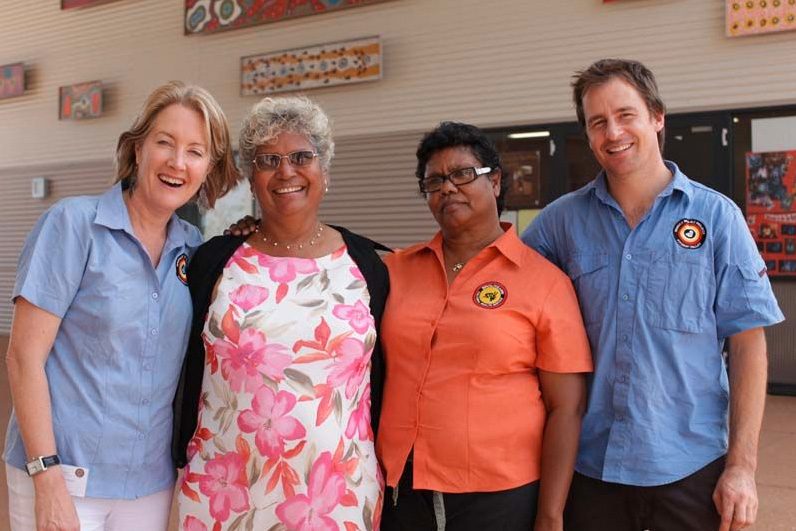
New research will provide first glimpse of the impact of alcohol misuse during pregnancy in remote Australia
An Australian research project being conducted in remote north-western Australia will provide world-first data to help address the long-term effects of alcohol misuse during pregnancy.
An overview of the Lililwan Project, published in the Lancet today, examines how the study will provide the first data from remote Australian Aboriginal communities on the effects of drinking alcohol during pregnancy, specifically the number of children born with fetal alcohol spectrum disorders (FASD), a range of life-long physical and developmental abnormalities.
The Lililwan Project, Australia’s first population-based FASD prevalence study, was initiated by the Aboriginal communities in the Fitzroy Valley of Western Australia in 2009.
Early data suggest that while only half the Aboriginal women involved in the research drank alcohol during pregnancy, many drank at high risk levels.
"This project will be extremely important in helping us understand the size of the problem of FASD, and providing high quality evidence with which we can work together with Aboriginal communities to seek effective solutions," Associate Professor Jane Latimer, Chief Investigator and Senior Research Fellow at The George Institute for Global Health, University of Sydney, said.
"FASD is a condition that these children will be living with from birth to grave. Any support required is life-long. We need solutions that are diverse, as one size does not necessarily fit all," Chief Investigator and CEO of the Marninwarntikura Women’s Resource Centre, June Oscar said.
Following a push from elders in 2007 to restrict the sale of takeaway alcohol in the town of Fitzroy Crossing, the community initiated a partnership with researchers from The George Institute for Global Health and the University of Sydney to determine how best to deal with the legacy of alcohol misuse in their community. The collaboration with the community has been hailed as an example of respectful and meaningful engagement.
"The Fitzroy Valley communities have shown great courage in undertaking a detailed study of FASD, with the 95 per cent participation rate a testament to community support," Research Fellow with The George Institute, University of Sydney, and Chief Investigator leading the fieldwork team on the study, Dr James Fitzpatrick said.
"Aboriginal communities seeking partnerships with world-class researchers is clever. This enables communities to set their own agenda for research and allows them to address their priorities," he said.
Researchers conducting the Lililwan study identified an entire age cohort of children living in the Fitzroy Valley and will conduct comprehensive testing to determine the prevalence of the specific FASD diagnoses.
As a part of the study the clinical team of speech therapists, occupational therapists, physiotherapists, psychologists, and paediatricians will educate families, teachers and local health professionals to develop the skills needed to diagnose and manage children with FASD.
"Above all, prevention of FASD remains the priority," Professor Elizabeth Elliott, an Australian expert in FASD, Professor of Paediatrics at The University of Sydney and study Chief Investigator said.
"The unique data gained from this study will inform prevention programs that may be used in remote communities.
"One of the most important aspects of this project is that it is led by the Aboriginal community who want to offer a better future for their children. Importantly they want to ensure that the languages and culture of Australia’s first people are remembered and passed on by future generations."





